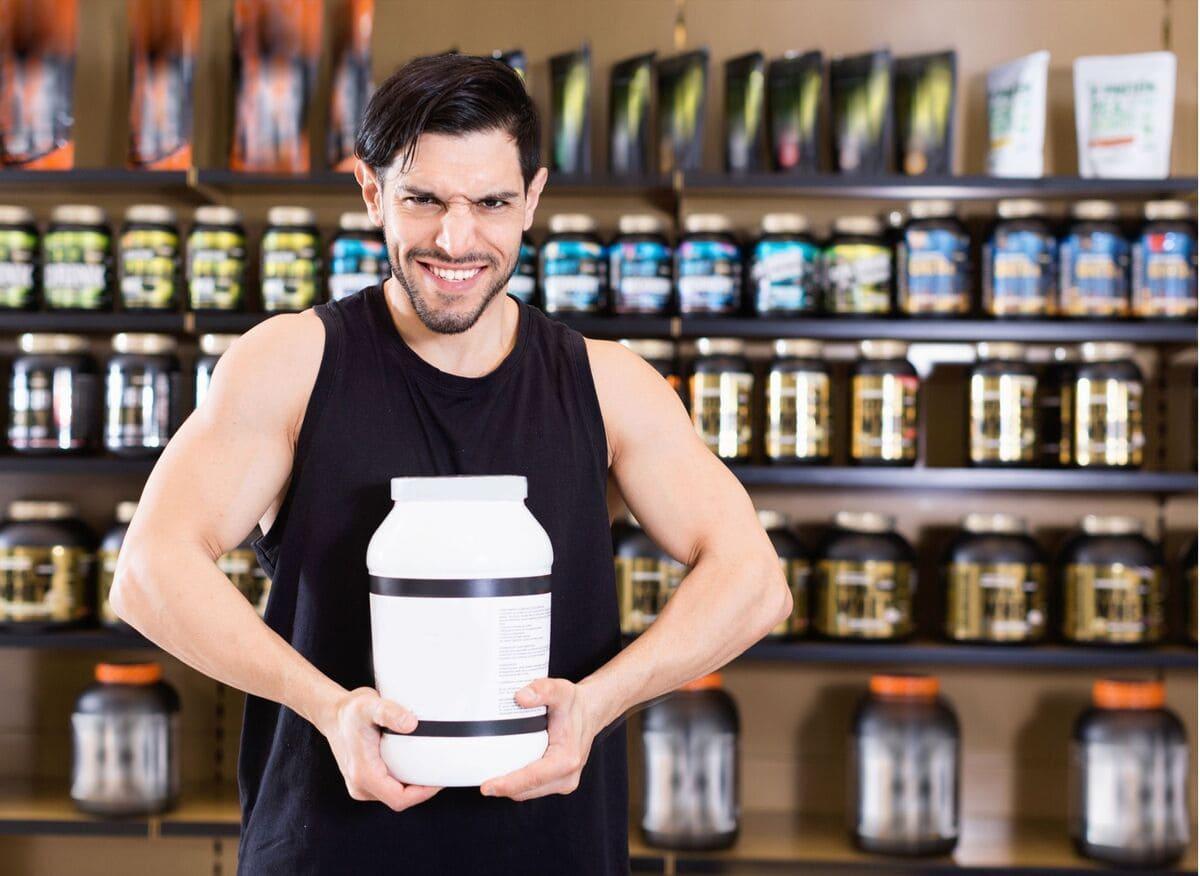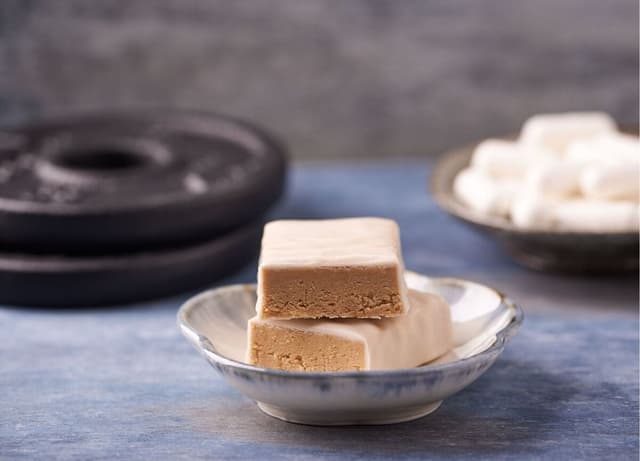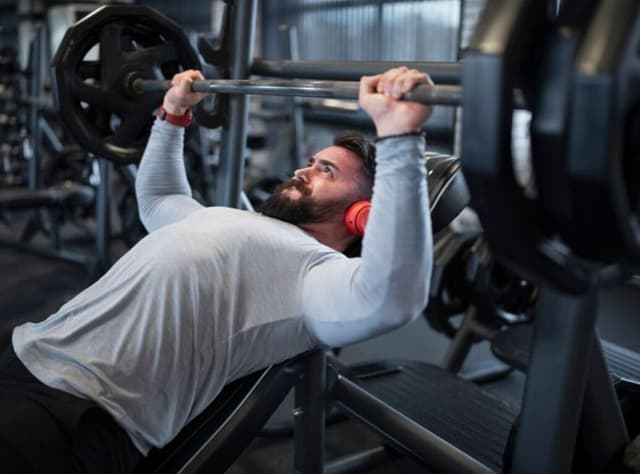How to Use Creatine for Fat Loss Without Sacrificing Muscle Mass: A Guide to the Best Creatine Strategies

April 20, 2024
If you're aiming to shed fat without losing those hard-earned muscles, you're not alone. The fitness journey often feels like a balancing act between cutting calories and maintaining muscle mass. How do you lose weight without becoming weaker? This is where creatine comes into play. As one of the best creatine supplements available, it can be a game-changer in your fat loss regimen. In this comprehensive guide, we'll explore how to effectively use creatine to lose fat while preserving muscle, ensuring you reach your fitness goals without compromise. Whether you're a seasoned athlete or just starting your fitness journey, understanding the role of creatine can make all the difference.
Understanding Creatine and Its Role in Fat Loss
To harness the full potential of creatine, it's essential to understand what it is and how it works. Creatine is a naturally occurring compound found in muscle cells, primarily aiding in the production of energy during high-intensity workouts. It's synthesized in the liver, kidneys, and pancreas from amino acids like glycine, arginine, and methionine. Approximately 95% of the body's creatine is stored in skeletal muscle.
By supplementing with creatine, you increase your muscles' phosphocreatine stores. Phosphocreatine helps regenerate ATP (adenosine triphosphate), the primary energy currency of the cell, especially during short bursts of intense activity. This increased availability of energy allows you to perform better during high-intensity exercises, leading to greater strength gains and muscle growth over time.
But how does this relate to fat loss? While creatine itself doesn't directly burn fat, it enhances your ability to perform intense workouts. This increased performance can lead to higher calorie expenditure and, consequently, greater fat loss over time. Moreover, creatine helps maintain muscle mass during caloric deficits, which is crucial when aiming for fat loss. Muscle tissue is metabolically active, meaning it burns more calories at rest compared to fat tissue. Preserving muscle mass can help sustain a higher metabolic rate, facilitating fat loss.
When choosing a supplement, opting for the best creatine on the market ensures maximum efficacy and minimal side effects. High-quality creatine monohydrate, for example, is well-researched and proven to be effective. Products that are micronized or use Creapure® creatine are often recommended for their purity and solubility.
In summary, understanding how creatine functions can help you leverage its benefits for fat loss without sacrificing muscle mass. By increasing your workout capacity and preserving muscle, creatine serves as a valuable tool in your fitness arsenal.
Common Misconceptions About Creatine and Weight Loss
Despite its benefits, creatine is often misunderstood, especially concerning weight management. One common misconception is that creatine causes weight gain due to water retention. While it's true that creatine draws water into muscle cells, this isn't the same as gaining fat. The slight increase in weight is actually a positive sign of muscle cell hydration, which can enhance muscle function and growth.
Another myth is that creatine isn't suitable for those looking to lose weight. However, studies have shown that when combined with resistance training, creatine supplementation can lead to improved body composition. For instance, a study published in the Journal of Strength and Conditioning Research found that participants who supplemented with creatine while on a resistance training program gained more lean muscle mass and lost more fat compared to those who didn't supplement.
Some people worry about bloating or gastrointestinal discomfort. These side effects are rare and often associated with incorrect dosing or low-quality supplements. By choosing the best creatine supplements, which undergo rigorous testing and quality control, you can minimize the risk of adverse effects.
There's also a misconception that creatine is a steroid or that it leads to kidney damage. Creatine is not a steroid; it's a natural compound similar to amino acids. Regarding kidney health, extensive research has shown that creatine supplementation is safe for healthy individuals when taken at recommended doses. Of course, those with pre-existing kidney conditions should consult a healthcare professional before starting any supplement regimen.
By dispelling these myths, you can confidently incorporate the best creatine supplements into your fat loss plan without fear of unwanted weight gain or health issues. Understanding the science behind creatine helps you make informed decisions and take full advantage of its benefits.
How to Use Creatine for Optimal Fat Loss
Our Top Recommendations

Optimum Nutrition Micronized Creatine Monohydrate Powder
Micronized for easy mixing, supports muscle growth and endurance.
See on Amazon$0.35 per 5g serving

Nutricost Creatine Monohydrate Micronized Powder
Third-party tested, non-GMO, 5g of pure creatine per serving.
See on Amazon$0.2 per 5g serving

NSF Certified, supports muscle power and recovery.
See on Amazon$0.46 per 5g serving

ProMix Creatine Monohydrate Powder
Micronized, additive-free, ideal for performance and recovery.
See on Amazon$0.36 per 5g serving

NOW Foods Sports Nutrition Unflavored
100% pure creatine, GMP certified, boosts strength and endurance.
See on Amazon$0.2 per 5g serving
To get the most out of creatine during your fat loss journey, consider the following practical steps:
- Choose the Right Type of Creatine: Opt for creatine monohydrate, as it's the most studied and effective form. The best creatine supplements often use this type due to its proven results. Look for products that are labeled as "micronized" or those that use Creapure®, a high-quality form of creatine monohydrate made in Germany.
- Proper Dosage: A common approach is to start with a loading phase of 20 grams per day, split into four doses, for 5-7 days. This saturates your muscles with creatine quickly. After that, a maintenance dose of 3-5 grams per day is sufficient. Some people skip the loading phase and start with the maintenance dose; saturation will occur but over a longer period.
- Timing Matters: While timing isn't crucial, some studies suggest that taking creatine post-workout can enhance muscle recovery and growth. Consuming it with a carbohydrate source can increase insulin levels, which may help shuttle more creatine into muscle cells.
- Stay Hydrated: Since creatine pulls water into muscle cells, it's important to drink plenty of water throughout the day. Aim for at least 3 liters of water daily to stay hydrated and support overall bodily functions.
- Combine with Resistance Training: Creatine works best when paired with regular resistance training. Focus on compound movements like squats, deadlifts, and bench presses that engage multiple muscle groups and burn more calories.
- Monitor Your Diet: While creatine can help preserve muscle, a balanced diet is essential for fat loss. Ensure you're in a caloric deficit by consuming fewer calories than you burn, but not so low that you risk muscle loss. A diet rich in protein can support muscle maintenance.
- Consistency is Key: Take creatine daily, even on rest days, to maintain muscle creatine stores. Consistency in supplementation, training, and diet will yield the best results.
- Avoid Alcohol and Excess Caffeine: Both can dehydrate you, counteracting the hydration benefits of creatine. Moderation is important to maximize creatine's effectiveness.
- Listen to Your Body: Pay attention to how your body responds. If you experience any adverse effects, consult a healthcare professional.
By following these steps and using the best creatine available, you can enhance your fat loss efforts without sacrificing muscle mass. Remember, the goal is to create a sustainable routine that supports both fat loss and muscle maintenance.
Conclusion
Losing fat while maintaining muscle mass doesn't have to be an uphill battle. Creatine supplementation, when done correctly, can be a powerful ally in your fitness journey. By choosing the best creatine products and integrating them into a well-rounded exercise and nutrition plan, you can achieve your goals more efficiently. Creatine enhances your workout performance, helps preserve muscle mass, and supports a higher metabolic rate—all crucial factors in effective fat loss.
Remember, the key is consistency and making informed choices. Educate yourself on the supplements you take, and don't fall for myths and misconceptions. By understanding how creatine works and how to use it properly, you're setting yourself up for success.
So why not give creatine a try and experience the benefits firsthand? Explore our related articles, together, we can reach our fitness goals.






